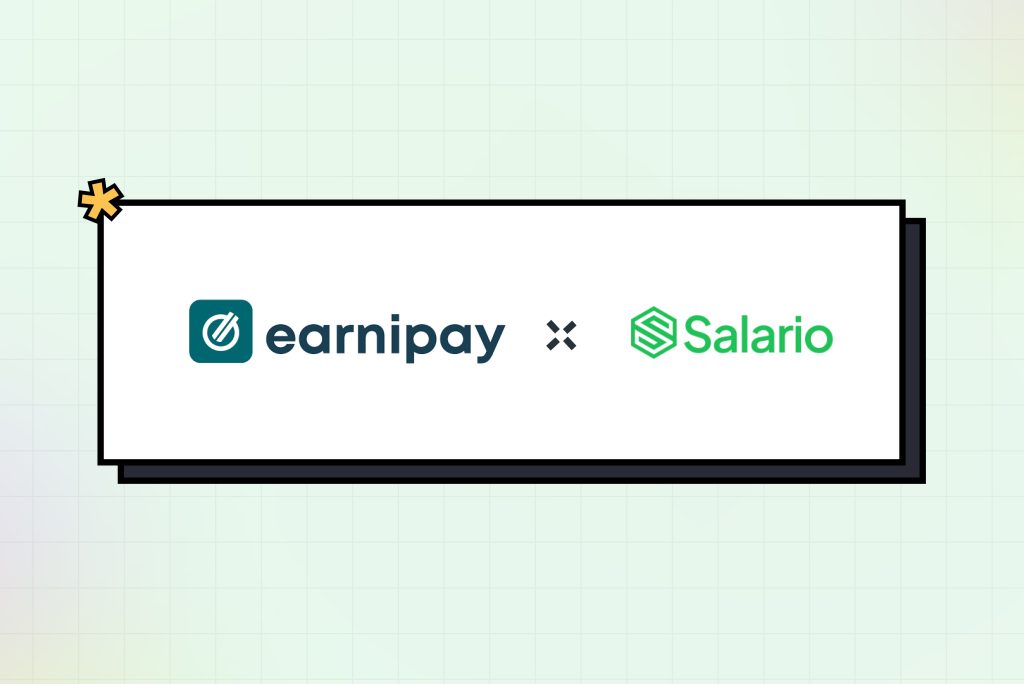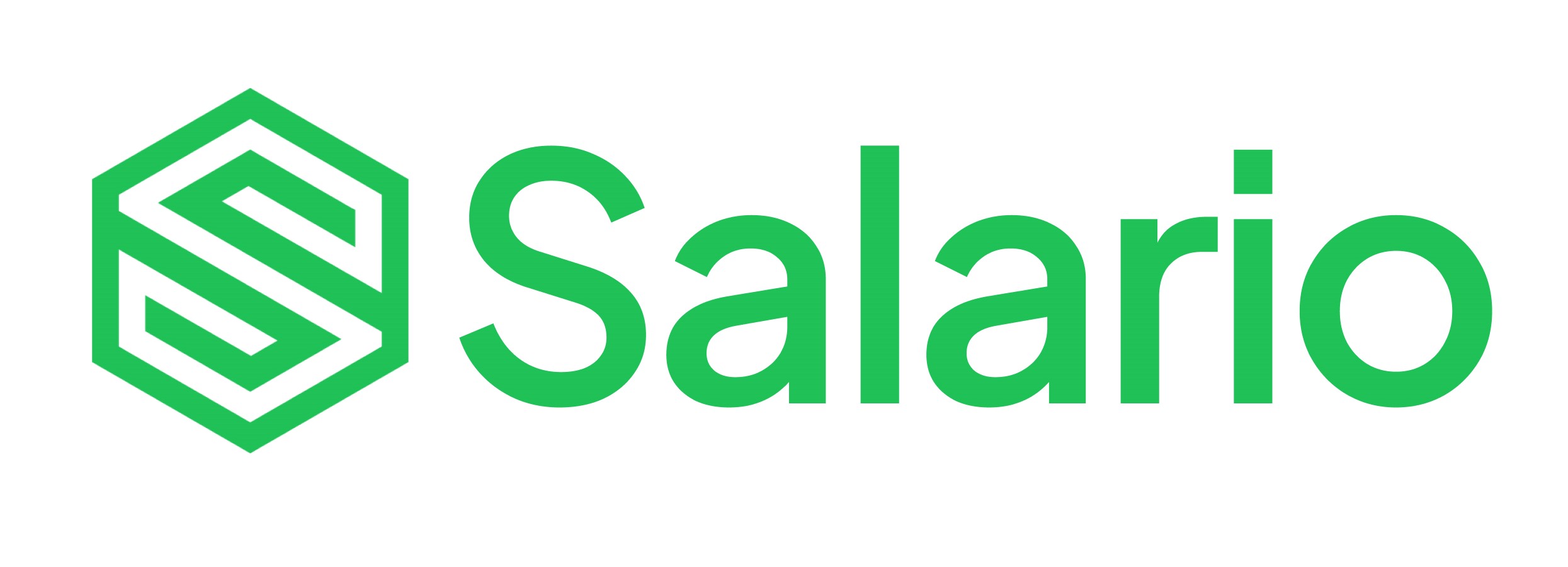
Businesses in Nigeria are growing rapidly, and alongside this growth, there is a need to simplify processes that can otherwise get sticky. This is especially true when it comes to paying employees and ensuring they stay compliant with Nigerian tax laws. Whether you’re a startup trying to offer flexible salary access or a growing company looking to streamline HR and payroll processes, the right platform can significantly impact your operations. Two major contenders serving Nigerian businesses in this space are Earnipay and Salario. Both offer payroll solutions tailored to local realities, but they approach it in notably different ways.
So, how do you decide between Earnipay vs Salario? If you’re looking beyond flashy features and really want a system that fits your company’s goals, from payroll accuracy to HR structure and financial wellness, this article breaks it all down for you. From salary disbursements to employee benefits and compliance, we’ll help you make the right call. Let’s explore which of these two platforms might be the smarter fit for your business.
Earnipay vs Salario: Payroll Capabilities
What is a payroll provider without comprehensive payroll capabilities? There are essential features, such as proper salary disbursement and automation, that every standard payroll solution should offer. How do these two solutions hold up?
Earnipay
When it comes to payroll processing, Earnipay approaches things with a strong focus on employee liquidity. Its core payroll functionality is built around earned wage access (EWA), allowing employees to access a portion of their salary before payday. For employers, Earnipay offers basic payroll features with some automation, including salary scheduling and disbursement tools. It’s ideal for businesses looking to improve employee satisfaction through flexible pay but may require integration with more robust HR systems to handle wider payroll complexities such as deductions, pensions, or statutory filings.
Salario
On the other hand, Salario takes a more end-to-end approach to payroll processing. Built specifically with African businesses in mind, Salario offers a fully automated payroll engine that handles everything from gross-to-net calculations to compliance-driven deductions like PAYE, pensions, and NHF contributions. The platform ensures statutory compliance, minimizes manual calculations, and provides detailed payroll reports. While Earnipay focuses more on financial wellness through early access, Salario is designed to handle both the complexity and compliance of payroll, making it a strong contender for businesses seeking a full-service payroll partner.
Earnipay vs Salario: Employee Management
Beyond the payment of salaries, many payroll tools and HR software offer employee management features, such as performance management, leave management, and more, to enable employers to better manage their employees, provide them with the right incentives, and maintain proper records for future purposes.
Earnipay
Earnipay provides a light-touch employee management experience that’s largely focused on payroll eligibility and access to earned wages. While it offers basic tools for adding employees, verifying identity, and managing pay-related data, it doesn’t double as a full-fledged HR platform. Onboarding and offboarding flows exist but are minimal, designed to support its payroll and EWA functions rather than provide deep HR oversight. It’s a good fit for businesses that already have HR processes in place but want to integrate financial wellness tools, such as early wage access.
Salario
Salario, in contrast, places a strong emphasis on structured employee lifecycle management. From digital onboarding with document collection and role-based setup, to clean offboarding protocols and real-time team data dashboards, Salario was built to support growing teams. Its system captures everything from job roles and contract details to compliance documentation and performance indicators. Salario also provides leave and performance management features that empower both employers and employees to increase productivity and general business wellness. With increasing integrations like Zoho People, Salario is positioning itself not just as a payroll tool, but as a central HR operations hub tailored for Nigerian businesses. If you’re managing a growing workforce and want a more centralized system of record, Salario offers more HR depth than Earnipay.
Earnipay vs Salario: Business Credit and Financial Tools
Business Credit and financial tools refer to tools that financial solutions can offer to their clients to make sure that they run properly beyond their direct offerings. In these cases, loan facilities and earned wage opportunities fall into this category.
Earnipay
Earnipay pioneered earned wage access in Nigeria, effectively giving employees a form of on-demand credit against their upcoming salaries. Through its platform, businesses can offer staff instant access to a percentage of their earned wages, helping employees manage cash-flow gaps without resorting to high-interest loans. From an employer’s perspective, Earnipay handles the credit underwriting, repayment via payroll deductions, and risk assessment, requiring minimal additional effort from your finance team. If your primary goal is to improve employee financial wellness with seamless advances, Earnipay’s business credit feature is hard to beat. Furthermore, for businesses, they also offer loans with friendly rates and customized repayment plans.
Salario
While equally committed to workforce well-being, Salario does not provide business credits, but instead relies on other financial wellness tools, such as benefits, in addition to pay disbursements that employers can use to incentivize employees. There are plans for a more employee-centered business credit facility in the future, but this remains in the pipeline for now.
Earnipay vs Salario: Employer of Record (EOR)
Employer of Record (EOR) services enable businesses to hire talent globally without establishing a local entity by acting as the legal employer and handling payroll, benefits, and compliance. This enables companies to quickly expand into new markets, avoid the costs and complexities of setting up foreign subsidiaries, and ensure compliance with local labor laws, making international hiring more efficient and risk-free.
Earnipay
Earnipay currently does not offer Employer of Record (EOR) services as part of its core business solution. Its primary focus remains on payroll processing, earned wage access, and improving employee financial wellness. This means businesses looking to hire across jurisdictions, especially those without a local entity in Nigeria, would need to explore third-party EOR solutions elsewhere or set up a local legal presence themselves.
Salario
Salario, on the other hand, now provides full Employer of Record services within Nigeria. This means Salario can hire employees on your behalf, handle all statutory compliance requirements (including tax, pensions, NHF, NSITF, etc.), draft compliant contracts, and ensure employees are paid accurately and on time. For businesses outside Nigeria, especially startups and SMEs in the UK, EU, or U.S. looking to tap into the Nigerian talent market without navigating complex labor laws or entity registration, Salario’s EOR offering provides a practical, low-risk entry path. It’s a strong differentiator for Salario, especially as more businesses look to scale globally while remaining agile.
Earnipay vs Salario: Ease of Use and Support Experience
Selecting a payroll platform is about more than just its features; it’s about the entire user experience. In a fast-paced work environment, a system that is intuitive, offers effective onboarding, and provides excellent support is crucial. This is the difference between a seamless payroll run and a stressful month-end scramble.
Earnipay
Earnipay delivers a sleek, user-friendly interface built with mobile-first accessibility in mind. Employees can easily access their earned wages, view payment history, and manage requests via the app, while employers benefit from an intuitive dashboard that simplifies salary scheduling and disbursement. However, for backend HR operations and more complex workflows, such as compliance tracking or multi-role team structures, Earnipay’s platform may feel somewhat limited. In terms of support, Earnipay offers email and chat support, with a helpful knowledge base, but its responsiveness and personalization may vary depending on the size of the business.
Salario
Salario, by contrast, offers a comprehensive suite of tools designed for both HR and payroll management, while maintaining ease of use. Its interface is built with both technical and non-technical users in mind, enabling seamless navigation across onboarding, payroll, statutory deductions, and employee data. What makes Salario stand out is its high-touch support model, tailored to Nigerian businesses. Users receive guided onboarding, dedicated account managers, and human-first customer service that actually understands local labor nuances. For businesses seeking an HR/payroll platform that not only works but also works with them, Salario provides a more personalized, hands-on experience.
Conclusion: Choosing Between Earnipay and Salario
Both Earnipay and Salario offer valuable solutions to help Nigerian businesses simplify payroll and support their teams, but they serve slightly different needs. Earnipay stands out for its focus on earned wage access and streamlined payroll scheduling, making it a solid option for companies prioritizing liquidity and flexible pay. On the other hand, Salario delivers a more holistic approach with deep HR capabilities, compliance support, and end-to-end employee management, all tailored for the realities of operating in Nigeria.
If your business is growing and you’re looking for more than just payroll, something that brings together people, processes, and compliance under one powerful, easy-to-use system, then Salario might be the better fit. Book a free demo today and let our team show you how Salario can help you simplify operations, stay compliant, and build happier teams.
